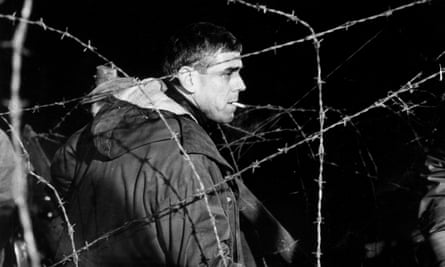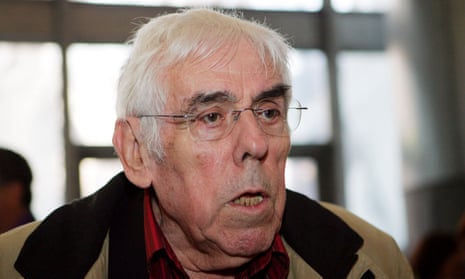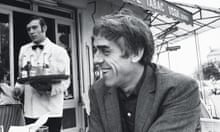Raoul Coutard, the French cinematographer who worked on many of the most important films of the New Wave movement, has died at the age of 92.
Among his credits were 17 Jean-Luc Godard films, including À Bout de Souffle (Breathless) and A Woman Is a Woman, and the François Truffaut films Jules et Jim and Shoot the Piano Player.
Born in Paris in 1924, Coutard became a photojournalist and from 1945 spent 11 years in Vietnam, initially serving in the army during the French Indochina war and then working as a freelancer for French magazines.
His move into film came about by accident, he told the Guardian in a 2001 interview. He believed he had been hired to shoot production stills on Pierre Schoendoerffer’s 1958 film La Passe du Diable (The Devil’s Pass), but found when he arrived on set that he had more responsibility than expected. “If I had known that the job was actually director of photography and that the film was to be in CinemaScope, I would never have said yes,” he admitted.
Coutard became famous for shooting with a handheld camera and for his use of natural light, causing controversy in the profession at the time. “The images were not polished, union rules were not respected and I was doing both lighting and framing, which was not done at all,” he said.
His first collaboration with Godard came in 1959, when the producer Georges de Beauregard appointed him to work on À Bout de Souffle, one of the earliest and most influential films of the New Wave.
Coutard said his working relationship with Godard was an unlikely partnership. “Jean-Luc is a fascist of the left, and I am a fascist of the right,” Coutard said. “But I had an advantage. Jean-Luc said, ‘We will shoot this film as if we were reporting a story.’ And since I was a photojournalist, that suited me.”
Coutard’s other work included the documentary Rocky Road to Dublin, with the Guardian reporter Peter Lennon, which ruffled the feathers of the Irish establishment and was effectively banned for 37 years.

In 1970, Coutard made Hoa-Binh, the first of his three films as director. It was nominated for the best foreign-language film Oscar and the Palme d’Or at Cannes.
Coutard worked far less frequently after the end of the New Wave era, although he did reunite with Godard in the early 1980s for the films Passion and Prénom: Carmen.
In the 90s, he struck up a partnership with the director Philippe Garrel, but retired after the 2001 film Wild Innocence.
“With cameramen and directors, the problem is always one of communication,” Coutard said that year. “When you arrive, the director has already been working on the scenario – perhaps for months. He has his own vision, then you arrive with your vision.”
Coutard died on 8 November at his home near Bayonne, in south-west France, after a long illness.



Comments (…)
Sign in or create your Guardian account to join the discussion